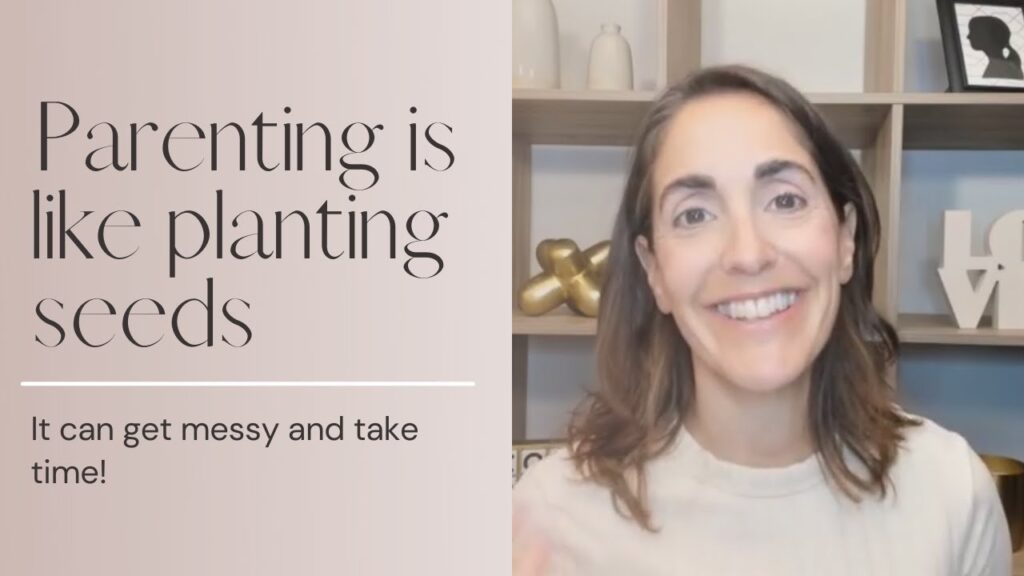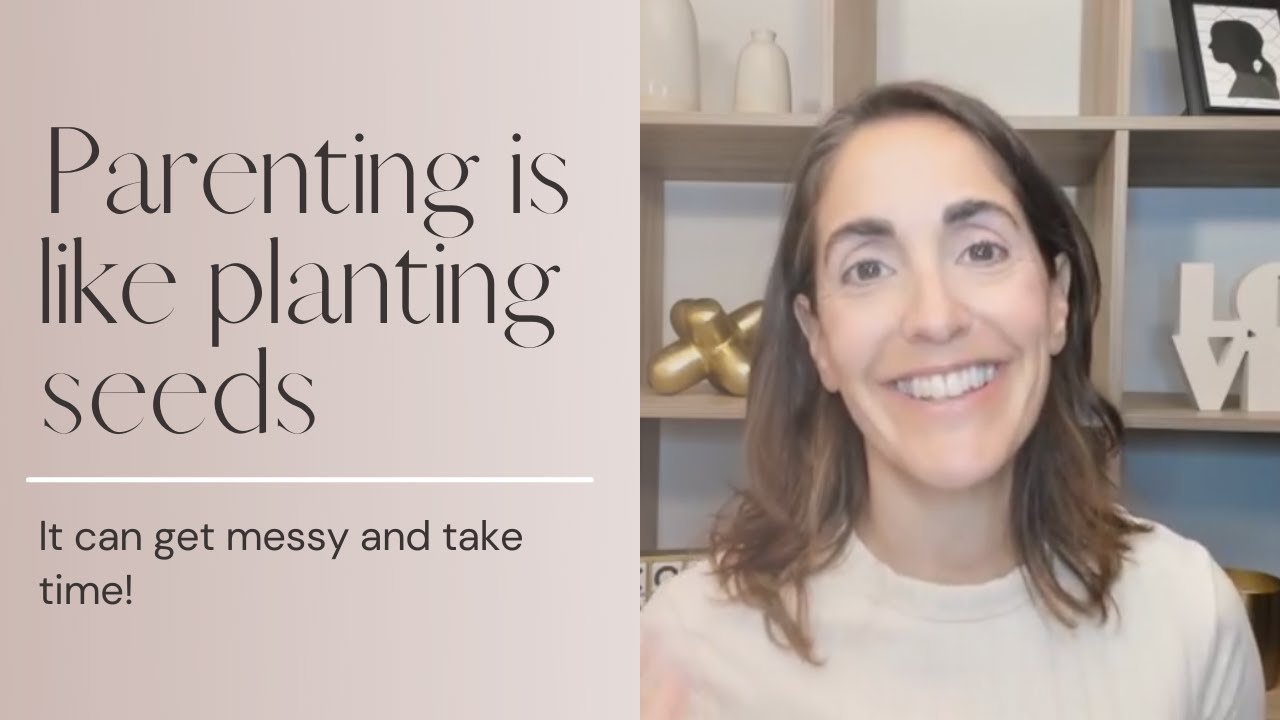
Accepting That Good Parents May Plant Bad Seeds: Navigating Unintended Consequences
Parenting is often portrayed as a straightforward equation: good parents raise good children. However, the reality is far more complex. Even the most well-intentioned and loving parents can inadvertently plant ‘bad seeds’ – behaviors, beliefs, or emotional patterns that negatively impact their children’s lives. Accepting that good parents may plant bad seeds is the first step toward understanding these unintended consequences and mitigating their effects. This article explores the various ways this can happen, offering insights and strategies for both parents and children navigating these challenging dynamics.
The Myth of Perfect Parenting
The idea of perfect parenting is a pervasive myth. Society often presents idealized images of happy families and children who excel in every aspect of life. This creates unrealistic expectations for parents, leading to feelings of guilt and inadequacy when things don’t go according to plan. It’s crucial to acknowledge that no parent is perfect. Everyone makes mistakes, and even the best intentions can sometimes backfire.
The pressure to be a perfect parent can also lead to over-controlling behavior. Parents may try to micromanage their children’s lives, fearing that any deviation from their carefully laid plans will result in failure. This can stifle a child’s independence and creativity, ultimately hindering their development. Accepting that good parents may plant bad seeds requires letting go of the need for control and allowing children to learn from their own experiences, even if those experiences involve making mistakes.
How Good Intentions Can Go Wrong
Many parenting practices are rooted in good intentions, but they can have unintended negative consequences. Here are a few examples:
- Overprotection: Shielding children from all adversity can prevent them from developing resilience and coping skills. While it’s natural to want to protect children from harm, excessive protection can leave them ill-equipped to handle challenges later in life.
- High Expectations: Encouraging children to strive for excellence is positive, but placing excessive pressure on them to achieve can lead to anxiety, stress, and a fear of failure. Children may feel that their worth is contingent on their performance, leading to low self-esteem and a reluctance to take risks.
- Conditional Love: Withholding affection or approval when children don’t meet expectations can damage their self-worth and create feelings of insecurity. Children need to feel loved and accepted unconditionally, regardless of their achievements or behaviors.
- Modeling Unhealthy Behaviors: Parents are role models for their children. If parents engage in unhealthy behaviors, such as excessive drinking, anger outbursts, or unhealthy relationships, children are likely to internalize these patterns.
- Lack of Emotional Availability: Even if physically present, parents who are emotionally unavailable can leave children feeling neglected and insecure. Children need to feel that their parents are attuned to their emotional needs and willing to provide support and comfort.
These are just a few examples of how accepting that good parents may plant bad seeds becomes a critical realization. Recognizing these patterns allows for intervention and change.
The Impact on Children
The ‘bad seeds’ planted by well-intentioned parents can manifest in various ways in their children’s lives. These can include:
- Low Self-Esteem: Feeling inadequate or unloved can lead to chronic low self-esteem and a negative self-image.
- Anxiety and Depression: Excessive pressure, fear of failure, or lack of emotional support can contribute to anxiety and depression.
- Relationship Difficulties: Unhealthy relationship patterns modeled by parents can make it difficult for children to form and maintain healthy relationships in adulthood.
- Difficulty with Emotional Regulation: Children who haven’t learned healthy coping mechanisms may struggle to manage their emotions effectively.
- Perfectionism: The pressure to be perfect can lead to debilitating perfectionism, making it difficult to take risks or enjoy life.
- Addiction: As a way to cope with emotional pain or stress, some individuals may turn to substance abuse or other addictive behaviors.
It’s important to note that not all children will be negatively affected by these parenting practices. Some children are naturally more resilient and able to cope with adversity. However, the potential for harm is real, and it’s crucial for parents to be aware of the possible consequences of their actions.
Accepting Responsibility and Making Changes
For parents who recognize that they may have inadvertently planted ‘bad seeds,’ the first step is to accept responsibility. This doesn’t mean blaming themselves or dwelling on past mistakes. Instead, it means acknowledging the impact of their actions and committing to making changes. This requires a willingness to examine their own behaviors and beliefs and to be open to feedback from their children.
Here are some strategies for parents who want to address these issues:
- Seek Therapy: Therapy can provide a safe and supportive space to explore parenting patterns and develop healthier ways of interacting with children.
- Communicate Openly: Encourage open and honest communication with children. Create a safe space where they feel comfortable expressing their feelings and concerns.
- Practice Empathy: Try to understand children’s perspectives and validate their feelings, even if you don’t agree with them.
- Set Boundaries: Establish clear and consistent boundaries, but be flexible and willing to negotiate when appropriate.
- Model Healthy Behaviors: Demonstrate healthy coping mechanisms, emotional regulation, and relationship skills.
- Apologize: If you’ve made a mistake, apologize sincerely and take responsibility for your actions.
Healing for Adult Children
Adult children who have been negatively impacted by their parents’ actions may need to engage in their own healing process. This can involve:
- Therapy: Therapy can help adult children process their experiences and develop healthier coping mechanisms.
- Setting Boundaries: Establishing clear boundaries with parents can protect adult children from further harm.
- Self-Care: Prioritizing self-care activities, such as exercise, meditation, and spending time with loved ones, can help adult children manage stress and improve their overall well-being.
- Forgiveness: Forgiveness, both of themselves and their parents, can be a powerful step toward healing. However, forgiveness doesn’t mean condoning harmful behavior. It means releasing the anger and resentment that can hold you back.
- Understanding: Accepting that good parents may plant bad seeds involves understanding that your parents may have been doing the best they could with the resources they had. This doesn’t excuse their behavior, but it can help you to develop empathy and compassion.
The Importance of Self-Awareness
Ultimately, the key to breaking the cycle of unintended consequences is self-awareness. Parents who are aware of their own patterns and beliefs are better equipped to avoid planting ‘bad seeds.’ Children who are aware of the impact of their parents’ actions are better equipped to heal and thrive. Accepting that good parents may plant bad seeds is a crucial step toward fostering healthier and more fulfilling relationships.
By understanding the complexities of parenting and the potential for unintended consequences, both parents and children can work together to create a more supportive and nurturing environment. Recognizing that even well-intentioned actions can have negative impacts allows for growth, healing, and a stronger foundation for future generations. The journey of accepting that good parents may plant bad seeds is not easy, but it is a necessary one for building healthier families and a more compassionate society. [See also: The Impact of Childhood Trauma on Adult Relationships] This awareness facilitates better communication and a willingness to adapt parenting styles as needed.
The realization that good parenting doesn’t guarantee perfect outcomes is vital for both parents and children. It fosters a more realistic and forgiving approach to family dynamics. Remember, accepting that good parents may plant bad seeds is not about blame; it’s about understanding, healing, and growth. [See also: Understanding Generational Trauma and Its Impact] It’s about creating a space where mistakes are seen as opportunities for learning and where unconditional love prevails.
Moreover, accepting that good parents may plant bad seeds encourages seeking professional help. Therapy can provide valuable insights and tools for navigating these complex family issues. It offers a safe environment to explore feelings, develop coping strategies, and build healthier relationships. Don’t hesitate to reach out for support when needed. [See also: The Benefits of Family Therapy: A Comprehensive Guide] This proactive approach can make a significant difference in fostering positive change and breaking unhealthy patterns.
In conclusion, while the ideal of perfect parenting is alluring, the reality is far more nuanced. Accepting that good parents may plant bad seeds is not a sign of failure but rather a recognition of the complexities of human relationships. By embracing self-awareness, open communication, and a willingness to seek help, families can navigate these challenges and build stronger, more resilient bonds. Remember, the goal is not to be perfect but to strive for progress and create a nurturing environment where everyone can thrive. The journey of accepting that good parents may plant bad seeds is ongoing, requiring continuous effort and understanding, but the rewards of healthier relationships and personal growth are well worth the investment.

